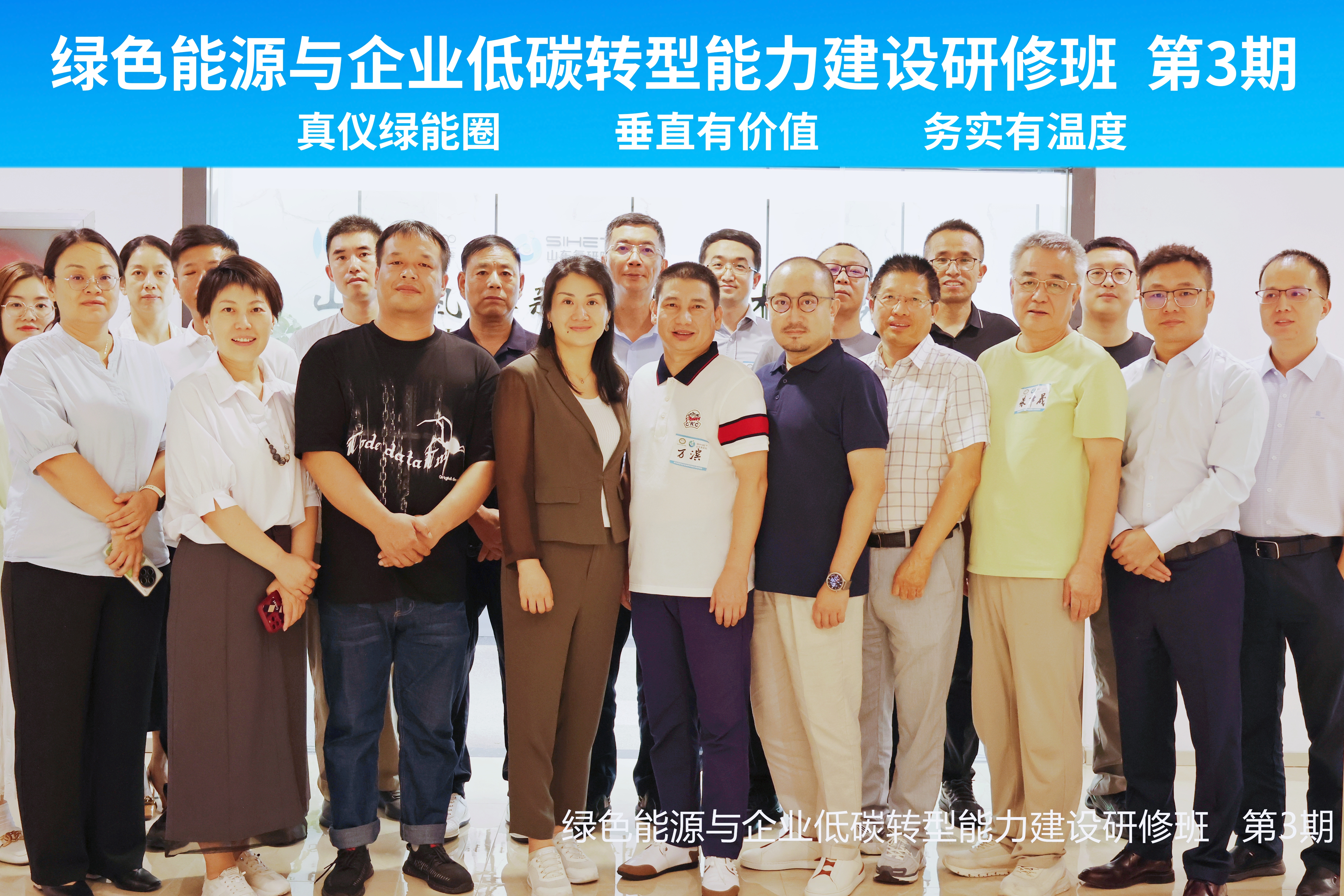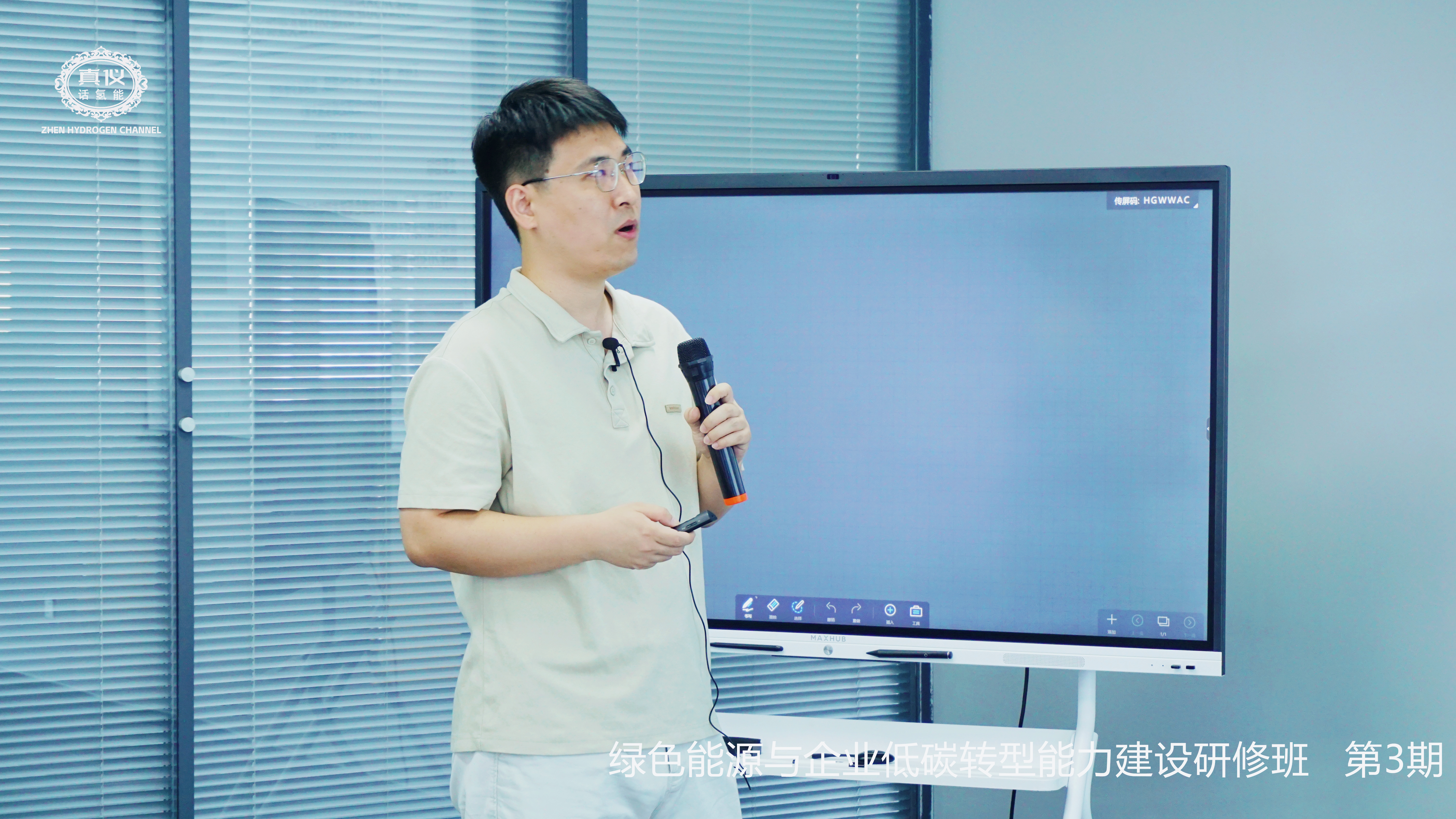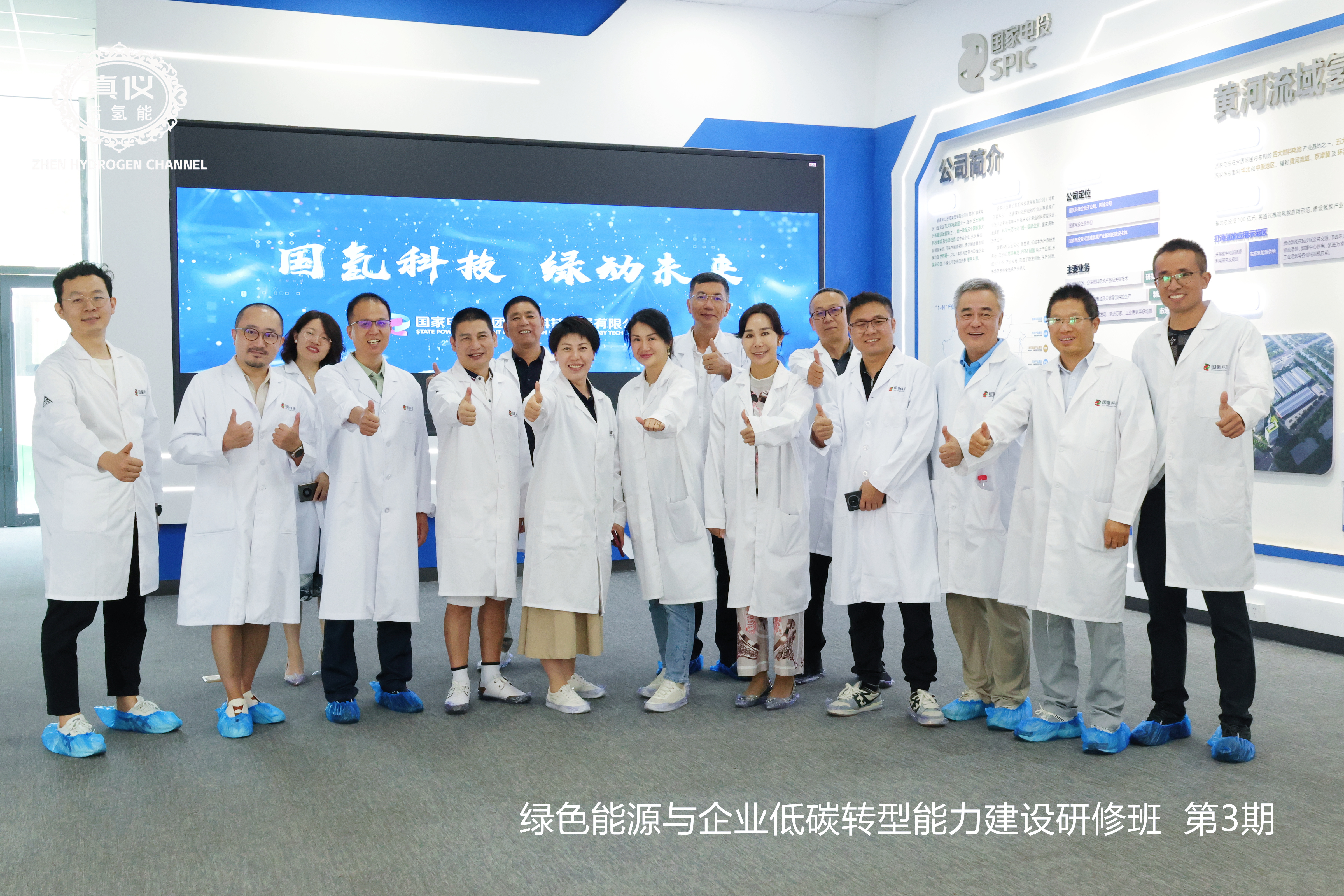August 29-30, China EV100 Low-Carbon Research Institute and Shandong Institute of Hydrogen Energy Technology successfully hosted the 3rd session of the "Green Energy and Corporate Low-Carbon Transition Capacity Building Training Program," themed "Green Energy and Industrial Decarbonization." Over 20 senior executives and technical professionals from over ten institutions and enterprises, including China Resources Power, CATL, Singapore Surbana Jurong Group, Canaan Intelligence, Shanghai Qingkong Technology, Inner Mongolia Guoke Hydrogen Source, Zhejiang Mingshen Hydrogen Energy, Shaanxi Taifaxiang Group, Hebei Dongri New Energy, and Hebei University of Science and Technology, participated in the program and received completion certificates.

Group Photo of All Participants
This training program included two parts: industry training sessions from the morning of August 29 to 30 and on-site field research in the afternoon of August 30. Six experts from institutions and enterprises such as Shandong Hydrogen Valley New Energy Technology Research Institute, Jiawei New Energy Co., Ltd., Shanghai University of Electric Power, Foshan Xianhu Laboratory, and Jinan Green Hydrogen Technology Co., Ltd. were invited to give lectures.

Zhang Zhen, Executive Director of China EV 100 Low-Carbon Institute and President of Shandong Institute of Hydrogen Energy Technology, delivered a lecture titled Green Energy and Industrial Decarbonization Industrial Opportunities. The course elaborated on the significance of green electricity and green hydrogen to carbon neutrality, their key roles in the integration of "source-grid-load-storage", and how green energy and industrial decarbonization can develop synergistically.

Sun Chuansheng, Technical Director of Shandong Institute of Hydrogen Energy Technology, lectured on Whole-Life Cycle Carbon Emission Accounting for Industrial Enterprises and Products. The course analyzed international and domestic greenhouse gas accounting systems, carbon emission calculations for industrial enterprises, whole-life cycle carbon emissions of different hydrogen production pathways, carbon emissions comparisons between traditional fuel vehicles and battery-electric passenger cars, and greenhouse gas emission accounting for green shipping fuels.

Han Zongbiao, Digital Energy Division Director of Jiawei New Energy Co., Ltd., lectured on Yunnan New Asia Pacific Logistics Port’s 21MWp Photovoltaic-Storage-Charging-EV Swap Integrated Zero-Carbon Project. The lecture introduced the necessity of project construction from aspects such as national policy background, local energy background, and the necessity of local grid energy structure adjustment, and analyzed the project’s photovoltaic system, electrical design, and charging station architecture.

Li Jin, Distinguished Professor at Shanghai University of Electric Power and Senior Engineer, lectured on DC Power Distribution Technology Promoting Green Synergy in Source-Grid-Load-Storage Systems. The course systematically introduced the past, present, and future of DC power distribution technology, DC power routing control and management systems, and source-grid-load-storage applications based on energy routing.

Yu Zhou, Director of the Ammonia-Hydrogen Research Lab at Foshan Xianhu Laboratory, lectured on Hydrogen-Ammonia Zero-Carbon Combustion Technology "Breaking the Ice" in High-Temperature Manufacturing. The course detailed zero-carbon fuels as critical pathways for low-carbon transformation in high-temperature manufacturing, ammonia-hydrogen integrated new energy technologies as disruptive innovations, and analyzed major technical challenges in hydrogen storage, transportation, and industrial combustion of ammonia.

Lei Qihui, System Engineering Lead at Jinan Green Hydrogen Technology Co., Ltd., lectured on Hydrogen Energy Technologies and Industrial Decarbonization Trends. The course introduced the development of hydrogen energy industries under China’s "dual carbon" strategy, technical routes and decarbonization trends in the hydrogen energy industry chain, and the National Energy Investment Group’s hydrogen industry layout in the Yellow River Basin hydrogen industry base.
On the afternoon of August 30, the program organized on-site field research visits to Jinan Green Hydrogen Technology Co., Ltd. and Shandong Sike Sais Hydrogen Energy Co., Ltd.

Visiting Jinan Green Hydrogen Technology Co., Ltd.
The first stop was Jinan Green Hydrogen Technology Co., Ltd., a wholly-owned subsidiary of State Power Investment Group’s Hydrogen Energy Technology Development Co., Ltd. Located in the Jinan New Energy Conversion Starting Zone, the company focuses on R&D of fixed fuel cell systems and air-cooled fuel cell products, builds manufacturing bases for fixed fuel cell and vehicle fuel cell equipment, and promotes multi-scenario applications in transportation, distributed power generation, "hydrogen to households", and industrial hydrogen use, advancing the construction of the Yellow River Basin hydrogen industry base.

Visiting Shandong Sike Sais Hydrogen Energy Co., Ltd.
The second stop was Shandong Sike Sais Hydrogen Energy Co., Ltd., China’s first enterprise specializing in PEM pure water electrolysis hydrogen production equipment. As a high-tech enterprise integrating R&D, design, manufacturing, sales, and service, it achieved full coverage of PEM electrolyzer models in China, making significant contributions to breakthroughs in hydrogen production technology.
After two days of industry training and on-site research, the 3rd session of the "Green Energy and Corporate Low-Carbon Transition Capacity Building Training Program" concluded successfully. All participants completed the program and received completion certificates.
Participants generally agreed that the two-day training program was rich, professional, and practical, providing deep insights into the low-carbon industry. They expressed strong enthusiasm for future sessions, viewing the program as a valuable platform for enhancing understanding of low-carbon industries, sparking passion for future development, and fostering collaboration opportunities. The program enabled participants to build relationships, exchange experiences, share resources, and discuss strategies for advancing green low-carbon industries. This not only supports corporate sustainability but also enhances individual career growth.

